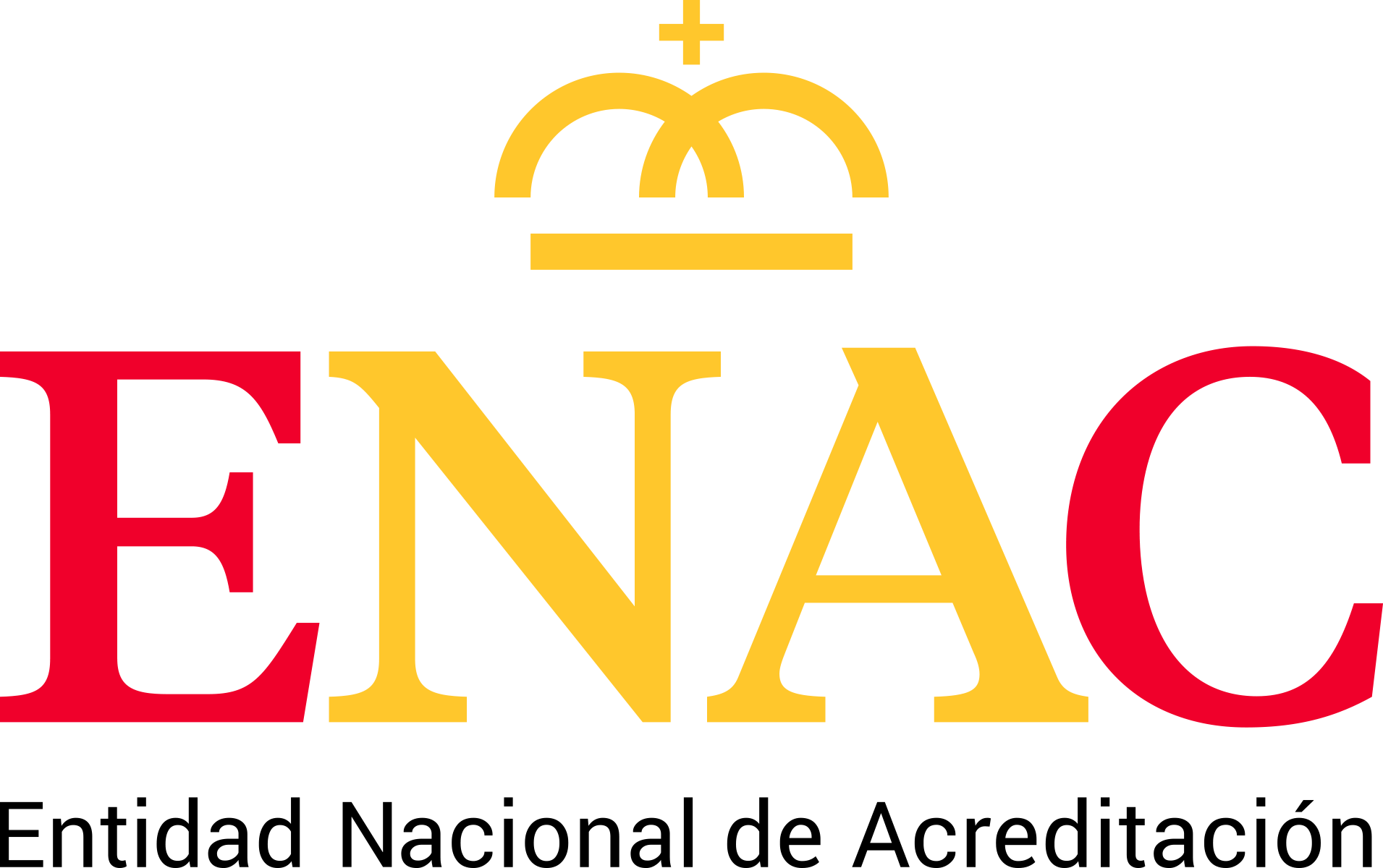Food industry is, undeniably, a strategic sector for Spanish economy. As a result, accredited testing services are the most useful and powerful tool for this sector to respond to its constant commercial challenges with the greatest assurance.
Tests performance in diverse areas- such as food safety- is crucial to demonstrate the compliance of the manufacturers and other food operators with the regulatory requirements of the European Union or third countries to which food products and goods are exported.
Another aspect where accreditation plays an important role in this sector is product certification, which has significantly increased in recent years, in both regulated and voluntary field. Key aspects in this regard include EU legislation on organic products, protected designations of origin and geographical indications (for wine and food), traditional specialities (such as serrano ham) and the requirements of national legislation in areas such as Integrated Production, Iberian pork products, exports to third countries (non-EU), for which accreditation plays a central role. The same applies to voluntary certification, where a number of schemes required for national or international distribution have emerged. These include GlobalG.A.P., BRC, IFS and QS, which require the participation of accredited certification bodies and, despite being firstly focused on the food industry, now include transportation, logistics, agents/brokers, etc.
Do you perform self-assessments?
Accreditation is not only beneficial for companies requiring external evaluation services. Internal assessment, especially the activity performed by internal laboratories (about quality control, product development, etc.) can also use accreditation as a tool to provide additional guarantees in the reliability of their results. This leads to an increase in security and confidence about the safety of the produced items and, therefore, to an increase in the confidence both the authorities, the distributors and the consumers have in the assessed products.
This is why food industry companies such as Pescanova España, Borges, Europastry, Cooperativas Orensanas (COREN), Dagu, Sovena España, Alhóndiga de la Unión, Guissona, Trouw Nutrition España (Nutreco Group), Acor or Alter rely on accredited assessment services (either internal or external) to perform their tests.
Accreditation is an essential tool to have the necessary guarantees in the results of analysis and certifications we handle daily to manage our food safety and quality matters. Undoubtedly, accredited suppliers provide us with a security level we would not be able to have otherwise.
Luis Plà, Quality Director, Mercadona (Spanish grocery stores chain)
Accredited services
These are some examples of accredited services regarding food industry: determination of the composition, characteristics and quality of food, food manufacturing processes control, animal and plant health control, organoleptic evaluation on fertilisers or sensory products, animal welfare inspections, compliance with Good Laboratory Practices (GLP) principles, protected designations of origin (PDO), protected geographical designation (PGI) and traditional specialities guaranteed certifications (TSG) certifications, integrated production and organic production certification, private schemes such as GlobalG.A.P., BRC, IFS, QS certification or food safety management systems certification.
- Tests to determine the composition and characteristics of food in order to establish the required nutritional information, control the presence of undesirable substances -pesticide residues, PCBs, dioxins, mycotoxins, heavy metals, etc.-, identify the presence of microorganisms that can cause disorders -food toxi-infection- or spoil food or detect the presence of allergens and other substances that cause intolerances, such as gluten intolerances.
- Tests to control food manufacturing processes to guarantee the hygiene of processing equipment and determine the safety of food packaging materials -containers and lids, caps and corks, paper for wrapping food, utensils, etc-.
- Tests for the sensory evaluation of food to detect and identify not only the defects in odour, taste and colour, but also its main positive attributes, even to determine consumer preferences.
- Tests to detect notifiable diseases in animals (Animal Health) and plants (Plant Health) as a key element of the correct diagnosis thereof.
- Tests to monitor the products and substances used in animal feed and for the early detection of residues of undesirable substances.
- Tests to monitor fertiliser products used in crop production and to prevent crops from exposure to banned substances or, in products derived from the latter, levels above regulatory limits.
- Tests to determine the quality of specific products such as oil or wine, which are key to the economic development of the food industry.
- Inspection of animal welfare, thereby contributing to food quality and safety, prevention of the spread of animal diseases and the humane treatment of animals.
- Inspection of compliance with Good Laboratory Practice (GLP) for test bodies that conduct studies to obtain data on the properties and hazards for humans, animals and the environment of plant protection products (pesticides, insecticides, fungicides, etc.), feed additives and industrial chemicals.
- Certification of Protected Designations of Origin, Protected Geographical Indications and Traditional Specialities Guaranteed.
- Certification of meat, ham and pork shoulder and loin under the Iberian Products Quality Standard and inspection of Iberian pig farms.
- Certification of Integrated Production in accordance with the regulatory documents drawn up by the Government.
- Certification of Organic Production, applicable to production processes in the field and to handling and processing in the industry, for both human and animal food and aquaculture products.
- Certification under diverse private schemes, such as those put in place and used by national and international distribution companies to control the products they purchase – Global G.A.P., BRC, IFS, QS – or the Controlled FACE Brand for products suitable for coeliacs in Spain.
- Certification of food safety management systems in accordance with ISO/IEC 22000, applicable to any organisation involved in the food chain.
